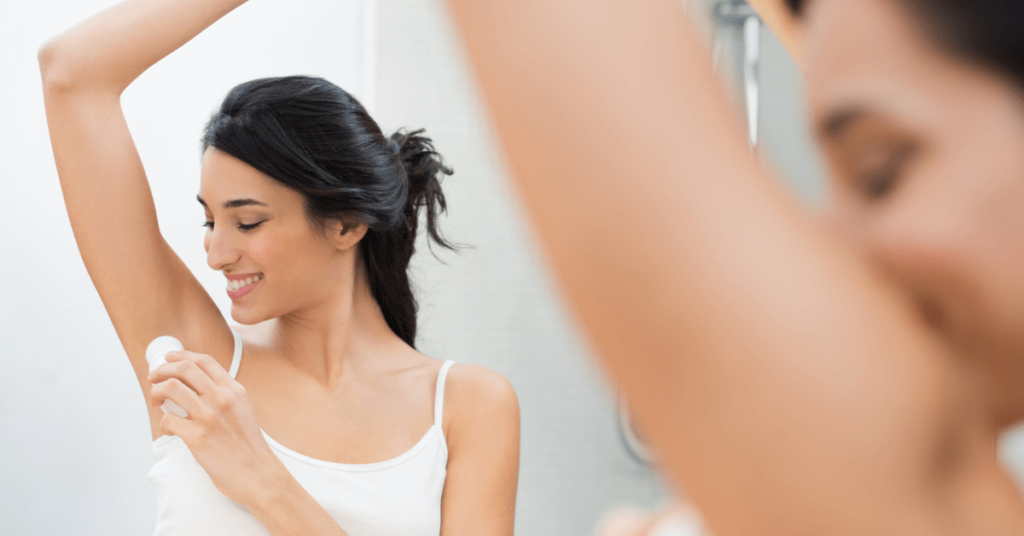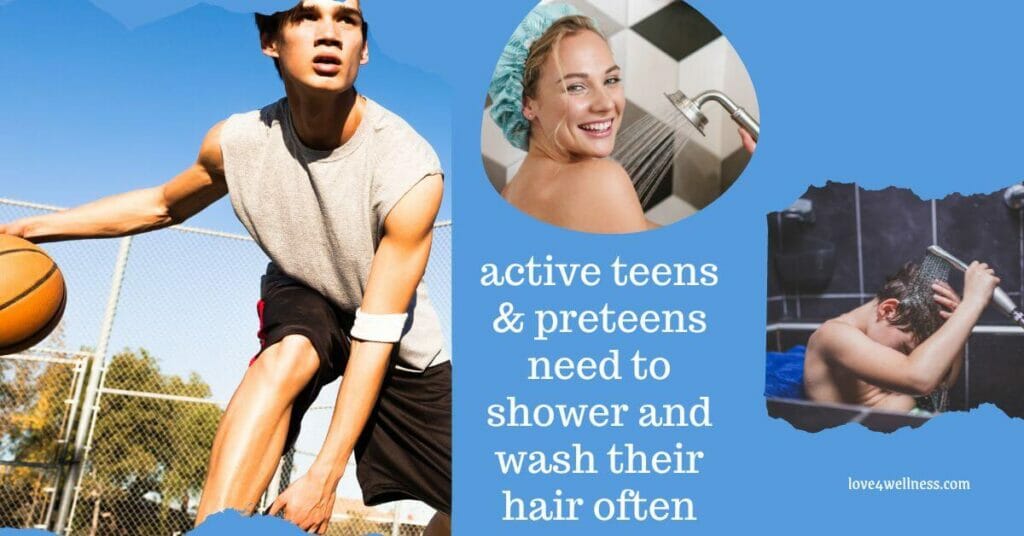In the article: Personal hygiene essentials parents must know to educate their teens and pre-teens on the importance of hygiene.
It’s relatively easy to manage the personal hygiene of a baby, toddler, or small child for one simple reason: they are unable to do it by themselves. When it comes to teenagers, they are old enough to take care of their basic hygiene needs. However, that comes with its benefits and downsides.
For one, you no longer have to chase them around the house to get them to brush their teeth. On the other hand, they may not brush their teeth consistently or properly, resulting in an array of oral issues such as bad breath, tooth decay, and cavities.
The best course of action is to ensure the teens know all about the importance of personal hygiene and how to look after themselves for their own benefit. Here’s your go-to guide for all personal hygiene essentials to discuss with your teen or pre-teen.
Managing Body Odour
Anywhere from the ages of 10–12, kids of any gender will begin sweating — sometimes a lot. It’s important to talk to them about what that means for their hygiene, such as the possible body odour associated with it, heat rashes, and sweat stains on clothes.
In the early stages of puberty, talk with them about how body odour can be unpleasant for themselves and those around them.
Every teen is different and may not experience significant sweating or body odour at all! In fact, every individual is unique and sweats differently, possibly with different odours. For, the smell depends on your microbiome (bacteria that live on your skin), which differs from person to person.
Hence, it’s best to approach the situation on a case-by-case basis.
- If your teen plays regular sports or pursues active hobbies, you can recommend they apply an antiperspirant to help with sweating and body odour.
- Massaging armpits and groin with soap for a good 20 seconds can help.
Washing Themselves Properly
While washing seems the most straightforward and simple personal hygiene task, it’s the one most people get wrong — even adults! Whether washing your hands or hair, following some guidelines is important to ensure you clean yourself efficiently.
Use quality products:
First, it’s important to use high-quality hygiene products that are hypoallergenic, sanitary, and contain fewer chemicals.
Washing hands
You can never stress enough the importance of properly washing your hands, which is one of the personal hygiene essentials your teen must be educated about.
Teens play a lot and touch many surfaces and things every day, especially at school. Viruses and bacteria are present on the objects and surfaces, and touching their nose or face with hands before washing with soap may make them catch cold or other infections.
Bathing
Bathing is another important task that is often ignored if you don’t have a schedule in place.
Generally, it’s best to shower or bathe any time after sports or physical activity. A quick shower every day is great, but if the kid doesn’t feel physically dirty, they can opt to shower every other day.
Washing hair
Hair washing schedules should be customized to the particular hair type of your teen: how oily or dry it is and the texture. There isn’t a one-shoe-fits-all approach.
Oily hair should be washed more often than dry hair. Kids who play sports regularly must wash their hair every day. Brittle and frizzy hair should be conditioned well.
Some teens may have dandruff due to excessive dry scalp or improper hair care. You may teach them some home remedies to get rid of dandruff. And more such!
Learning about hair growth
Another personal hygiene essential teens must know is hair growth. Besides body odour, body hair growth is another natural phenomenon that occurs during puberty. Underarm, leg, and facial hair can all appear simultaneously and be a foreign occurrence for any adolescent.
It’s important to sit down with your teen who has hit puberty and discuss how they want to handle their body hair. This is more of a subjective matter, and the decisions come down to the preferences of the parent and teen.
Some teens don’t have an issue with their body hair, while others feel more hygienic when the hair is removed. You can suggest shaving during their teen years since waxing and laser hair removal, while not particularly harmful, aren’t suitable for developing teens.
Tackling tooth care early
One morning they’re late to school and miss out on brushing their teeth, the next day, they are sipping on bubbly soda and eating sugary candy all day, and the day after that, they’re vigorously biting their nails.
The point is that your teen may disregard the importance of regular oral hygiene and not follow a consistent routine, resulting in tooth decay and other problems.
As a rule of thumb, kids should brush their teeth twice daily: once in the morning and once before bed. Ideally, it is good to floss and use mouthwash.
Oral hygiene neglected in teen years may result in spending the rest of young-adult life tackling the consequences of that.
So they must take good oral care, and of course, you can also take them for regular visits to the dentist for check-ups and cleaning for maximum results.
Personal Hygiene Checklist For Teens
To sum up, here is a quick, go-to list of hygiene essentials. Use this as a reference for yourself and your teen, customizing as seen fit:
- Brush your teeth twice a day (flossing is recommended)
- Preferably, shower or bathe every 1-2 days
- Change your undergarments and socks each day for a fresh pair
- Wash your hair as often as necessary (typically 2-3 times a week)
- Trim and clean nails whenever applicable
- Shampoo and condition your hair as necessary based on hair type
- Active kids such as the ones training for competitive sports can use deodorants and antiperspirants to control sweating and the related body odour
By following this guide, we’re sure both you and your teen will lead a healthy and happy lifestyle.
Edited by love4wellness.com | Images: canva.com



